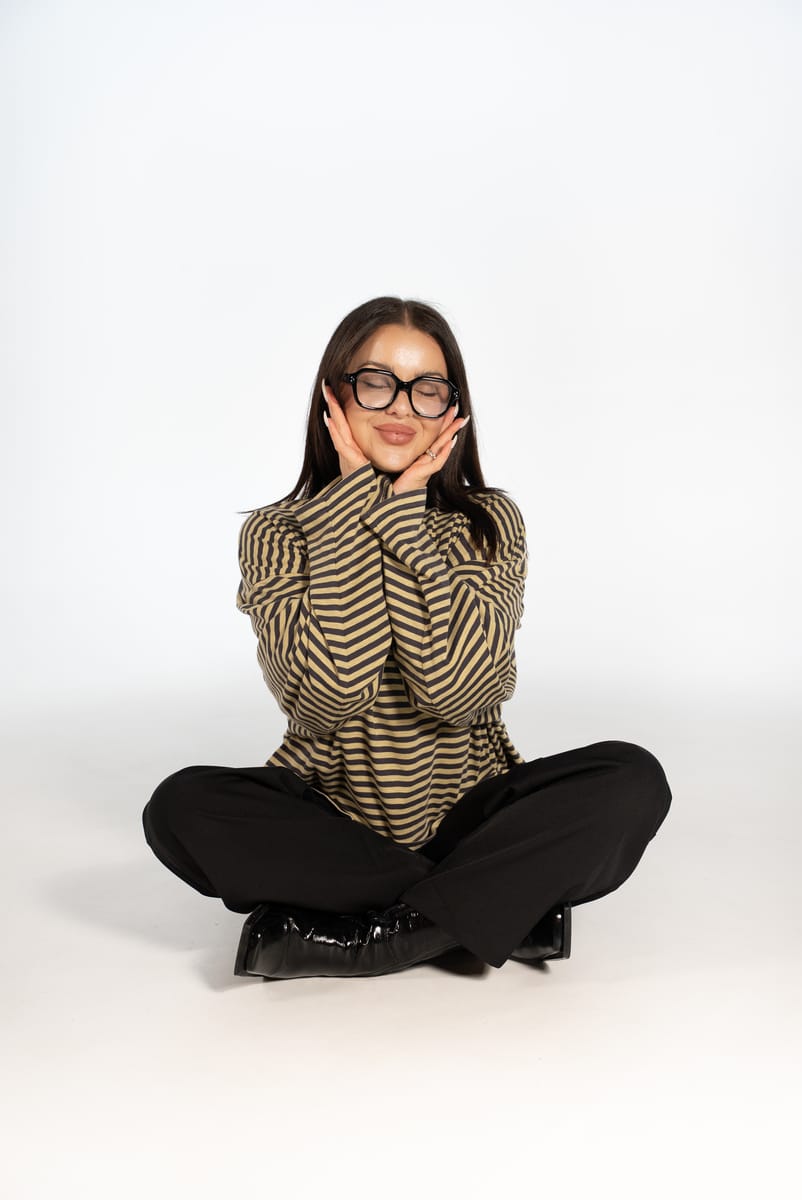
Once upon a time, intelligence meant accumulation.
The smartest person in the room was the one who knew the most: the trivia buff, the encyclopedia brain, the human calculator. We revered the information hoarder. The expert. The academic. But now? AI knows more than all of us. Wikipedia is free. And the internet has obliterated any barriers to accessing knowledge.
Sorry nerds, but the emphasis is no longer on who can store and regurgitate the most information. I can likely find that faster than you can blabber about it, anyway. The baton has been passed. Your time is done. What matters now is what you do with your knowledge. How you perceive the world around you. How you recognise signal in the noise.
In 2025, taste is the new IQ test.
“The question is no longer "can it be made?" but "is it worth making?" I read this in Stepfanie Tyler’s Wild Bare Thoughts and it struck a chord so deep within me, it almost made a sound. In the current state of content - the unprecedented volume of it all, the sheer fact that AI can make anything before you can even think to object - it’s no longer just about what you’ve made or how much of it. Now, it’s about discernment and discipline: the ability to be intentional about what matters as the world drowns in slop.
Content is infinite. Tools are frictionless. Design templates, copy generators, video editors, music models - they’re all accessible, instant, and mostly free. You can quite literally make anything now. But so can everyone else. The challenge is no longer output, it’s judgment. The skill that actually matters is knowing what not to make. What not to share. What not to chase. And what, among the endless flood of options, is actually meaningful.
That, my friends, is taste.
Not taste in the superficial sense. Not the curated minimalism of a status-y lifestyle. Not trend-hopping or vibe-chasing or trying to mimic what’s already viral. Real taste is about coherence. It’s about clarity of perspective. It’s the ability to recognize the difference between what looks good and what feels true. The ability to spot the signal in the noise. Not just for yourself, but for others. The kind of discernment that can’t be automated or faked.
In an environment of infinite supply, value shifts to what’s scarce. And what’s scarce today?
Attention. Where we place our attention - and what we choose to amplify - shapes our culture, our business, and our brains. Your scroll history is a map of your values. Your “likes” are tiny ideological votes. What you share becomes a recommendation engine for your circle, whether you intend it or not. So, when we talk about taste as intelligence, we’re talking about the ability to edit. To filter. To discern. To know what deserves your energy… and what doesn’t. That’s not just a soft skill. It’s strategic, crucial even.
Think about how we navigate the world now. We don’t just want more data: we want trusted filters. People, platforms, and brands who can make sense of the chaos. Who can help us see clearly through the murky waters. That can translate the world back to us. Being smart in this era doesn’t mean knowing everything. It means knowing how to sift through everything. It’s about selecting, not simply collecting.
And that’s where taste becomes a differentiator. A creative advantage. A leadership trait. A cultural freaking force. It’s the difference between endless content and memorable content. Between being seen and being saved. Between “meh” and “must”.
That being said, can we really "develop” good taste? Is it a skill that can be learned?
In my opinion, it’s something you can’t download or prompt. It’s certainly not about having the right references or being first to a trend. It’s about depth. It’s about patterns. It’s about care. It takes time, repetition, curiosity and intention.
But here’s where you can start:
Pay close attention to your attention. What pulls you in? what repels you? Why?
Interrogate your influences. Who do you admire, and are they just shiny? or actually sharp?
Go beyond the algorithm. Seek out new formats, unfamiliar voices, older work. Feed your brain things it doesn’t expect.
Develop your taste through tension. Read things you disagree with. Look at art you don’t “get.” Ask better questions.
Make, revise, repeat. Taste is observational and iterative. Every decision you make sharpens it.
And maybe most importantly:
Stop chasing what’s popular. Because by the time it’s trending, it’s already over. Taste is more than being in the know. Taste is being in tune.
It’s a survival skill.
In an economy where creation is cheap, what’s expensive is discernment. The ability to cut through the noise, to choose with care, to lead with intention: that’s what sets people (and brands, and ideas) apart. AI can generate endless content. But only you can decide what’s worth your time. And that decision is your intelligence at work.
Choose wisely.
-Sophie Randell, Writer
Not going viral yet?
We get it. Creating content that does numbers is harder than it looks. But doing those big numbers is the fastest way to grow your brand. So if you’re tired of throwing sh*t at the wall and seeing what sticks, you’re in luck. Because making our clients go viral is kinda what we do every single day.
